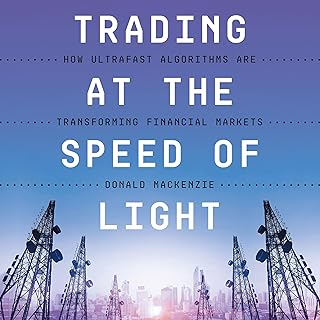Chinese customs officials are investigating foreign high-frequency trading firms Tower Research Capital, Jump Trading, and Optiver over their compliance with importing specialized communication equipment for their trading activities. The probe, initiated in July, is focused on the firms’ customized trading infrastructure, including servers and chips crucial for achieving millisecond-level speed advantages.
The investigation, conducted by the Shanghai branch of China’s General Administration of Customs, has involved visits to the firms’ Shanghai offices over the past three months. The scrutiny comes amidst heightened competition in chip technology between China and the West, adding a layer of complexity to the situation.
According to reports by Futures Daily, Tower Research Capital, based in New York, was found to be using overseas equipment that lacked mandatory certifications, raising concerns about compliance. The firm was allegedly utilizing uncleared or misdeclared equipment, including servers, FPGA/ASIC chips, and network cards.
Chinese authorities have directed Tower Research and Jump Trading, headquartered in Chicago, to implement stricter management measures concerning the specialized communication equipment under scrutiny. However, specific details about these measures have not been disclosed publicly, emphasizing the sensitivity of the matter.
While Tower Research and Jump Trading face regulatory actions, the investigation’s findings regarding Optiver, based in Amsterdam, remain undisclosed. The Shanghai customs official involved in the investigation declined to provide further details, citing confidentiality concerns.
Notably, Futures Daily’s report on the investigation was later removed from its website, raising questions about the transparency and disclosure surrounding the probe. The publication confirmed the deletion of the report but did not offer an explanation for the removal.
As of the latest update, the Shanghai branch of the General Administration of Customs has not responded to requests for comments from Reuters, leaving the situation surrounding the investigation and its implications somewhat opaque.
The intricacies of high-frequency trading and the regulatory scrutiny it faces underscore the evolving landscape of financial markets, where technological advancements and compliance requirements intersect. The outcome of China’s investigation into these foreign trading firms could have broader implications for the industry, shedding light on the regulatory challenges faced by high-frequency traders operating in global markets.
📰 Related Articles
- Six Swiss Exchange Trading Halted Over Technical Disruption
- Platinum Futures Soar Over $1000 Amid Rising Chinese Demand
- How Hong Kong Regulators Support Chinese Firms on Shenzhen Stock Exchange
- Financial Firms Prioritize Quality Over Quantity in Client Onboarding
- Financial Firms Navigate AI Regulations for Innovation and Compliance






